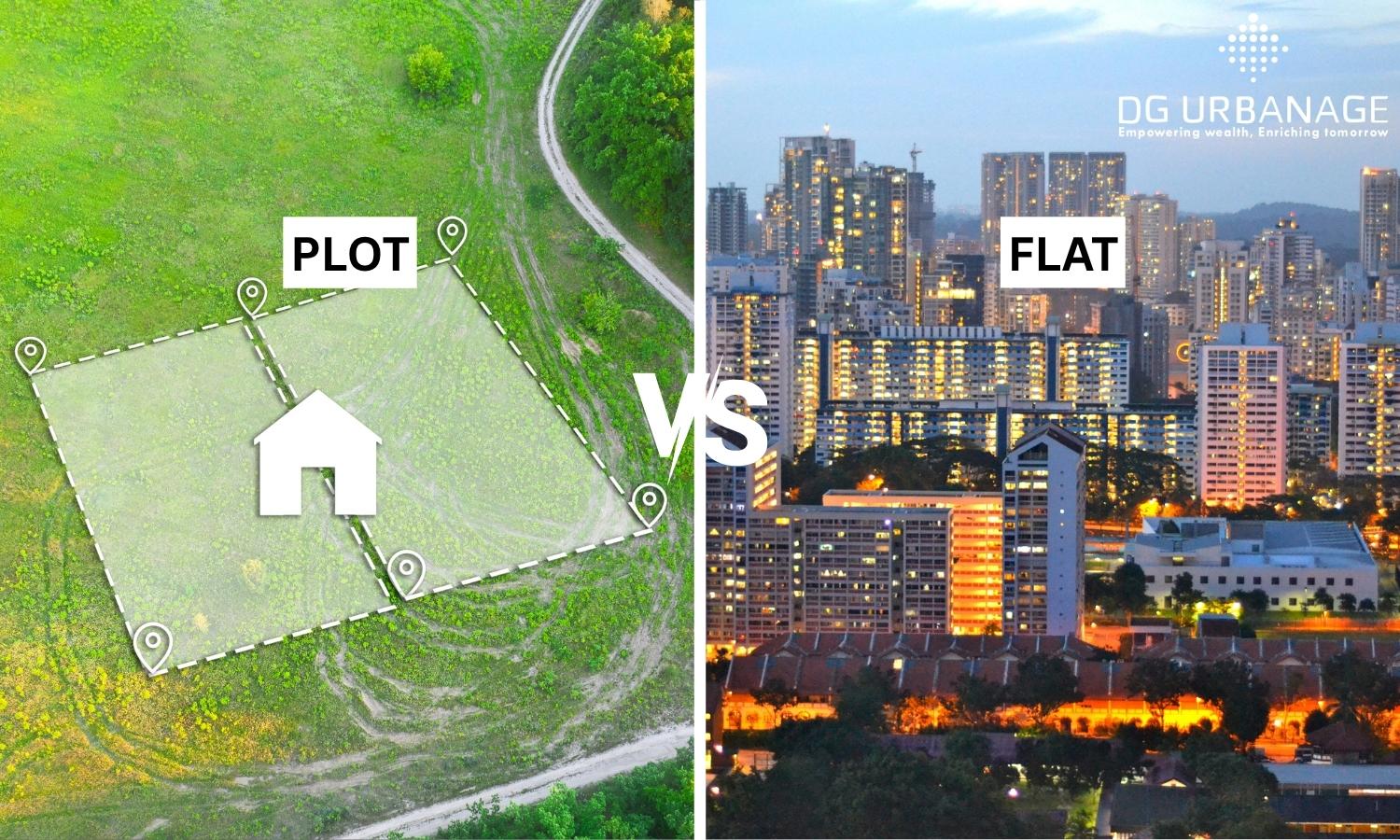
How to Register Property in Gurgaon (2025 Update)
Registering a property in Gurgaon in 2025 is a straightforward process that includes verifying documents, generating an e-stamp, booking an appointment, completing biometric verification, collecting the registered deed, and receiving verified ownership— all under the updated 2025 guidelines.
Completing property registration in Gurgaon is a crucial step that legally secures your ownership and protects your investment. Whether you're buying your dream home or exploring real estate investment opportunities in one of India’s fastest-growing markets, proper registration ensures a clear title, boosts resale value, and helps you avoid future legal disputes. In 2025, updated procedures make it essential to follow the right steps to prevent delays, penalties, or costly mistakes. This blog serves as your complete guide, breaking down the entire process and helping you navigate property registration in Gurgaon with clarity.
Why is Property Registration Important?
Property registration is the key step that transforms a private transaction into a legally recognized title, providing security, compliance, and long-term value. Here’s why registering your property is an essential safeguard for your investment:
1. Legal Ownership Acknowledgement:
Property registration officially records the transfer of ownership, granting you legal title. It serves as crucial proof of ownership, protecting you in case of future disputes or claims.
2. Protection Against Fraud and Encroachments: A registered property is protected from illegal claims or unauthorized transactions. It safeguards you from potential encroachments, fraudulent transfers, or false ownership claims.
3. Essential for Resale and Transfer: You cannot legally sell, lease, or transfer property without proper registration. It's a mandatory step for loan applications, inheritance, or resale, ensuring a smooth transaction process.
4. Compliance with State Regulations: In Haryana, property registration is a legal requirement. Failing to register may lead to serious legal issues or penalties, particularly if stamp duty in Gurgaon remains unpaid.
5. Accurate Property Valuation: The registration process includes declaring the property value, which plays a key role in accurate property assessment. This transparency also helps in calculating registration charges in Gurgaon, aiding in clearer financial planning.
Step-by-Step Guide to Property Registration in Gurgaon
Step 1: Document Verification
Start by ensuring all essential documents are in order. This includes verifying the sale deed, mutation records, encumbrance certificate, and previous ownership details. Proper document checks are crucial for a smooth registration process.
Step 2: Stamp Duty and Registration Fee Calculation
Calculate the stamp duty and registration fees for your property in Gurgaon. The amount depends on factors such as the property’s type, location, and ownership category (individual or joint, male or female). Ensure you account for all fees to avoid surprises later.
Step 3: Document Preparation & Application Submission
Gather all necessary documents, including identity proofs, PAN cards, address verification, No Objection Certificate (NOC), and property-related documents. Complete the registration application form and submit it either online or at the Sub-Registrar's Office (SRO).
Step 4: Payment
Make the necessary payments for stamp duty and registration fees through authorized payment portals or banks before scheduling your appointment for registration.
Step 5: Appointment Scheduling
Once your payment is processed, book an appointment at the designated Sub-Registrar's Office (SRO) for registration. Ensure you have all your documents ready for the visit.
Step 6: Biometric Authentication and Signing
Both the buyer and seller must be present for biometric authentication at the SRO. Following the biometric process, you will sign the sale deed in the presence of the sub-registrar to complete the legal formalities.
Step 7: Deed Collection
After verification, your registered sale deed will be processed and issued. You can collect the final document, now legally binding and proof of ownership.
Documents Required for Gurgaon Property Registration 2025
Getting your documents right is the first and most important step toward a smooth property registration in Gurgaon. It helps speed up the process, protects you from legal troubles later on, and saves you from unnecessary delays or penalties. To make your registration hassle-free in 2025, here’s a detailed list of all the documents you’ll need:
1. Sale Deed (Original and Copies): The sale deed is the legal document that proves the transfer of ownership from the seller to the buyer. Make sure to bring the original sale deed along with 2-3 certified copies for submission at the Sub-Registrar’s office.
2. Identity and Address Proof of Buyer and Seller: Valid identity proof such as an Aadhaar card, passport, voter ID, or driving license is required to verify both parties' identities and residential addresses.
3. PAN Card of Both Parties: If the transaction exceeds ₹10 lakh, both the buyer and seller must submit their PAN cards. This ensures compliance with tax regulations and transparency in the calculation and payment of stamp duty and taxes in Gurgaon.
4. Encumbrance Certificate (EC): The EC certifies that the property is free from any legal or monetary liabilities, ensuring that the buyer acquires clear ownership without any hidden encumbrances.
5. Mutation Details (if applicable): Mutation refers to updating ownership information in the local revenue records. If the property has already been mutated, ensure you provide the latest mutation documents.
6. No Objection Certificate (NOC) from Relevant Authorities: If the property is part of a housing society or development project, you’ll need to provide an NOC from the relevant authority or developer. This ensures there are no legal hurdles in the registration process.
7. Passport-Sized Photographs of Buyer and Seller: Both the buyer and seller must provide recent passport-sized photographs for their registration file and biometric verification at the Sub-Registrar’s Office.
8. Latest Property Tax Receipts: Make sure to carry the most recent property tax receipts to prove there are no outstanding dues with the municipal body. This will strengthen your case for lawful ownership.
9. Stamp Duty Payment Receipt: Once you’ve paid the applicable stamp duty in Gurgaon, make sure to carry the official receipt. This is a mandatory document that confirms the payment and allows you to move forward with property registration.
10. Registration Fee Receipt: This serves as proof that you’ve paid the government registration charges. It’s crucial for securing your appointment slot at the Sub-Registrar’s Office and officially registering the property.
11. Home Loan Documents (If Purchased on Loan): If you’ve financed the property through a home loan, you’ll need to submit the bank’s sanction letter, disbursement details, and a No Objection Certificate (NOC) from the lender. This step ensures the bank’s interest is recorded as part of the official transaction.
Online Property Registration Process in Gurgaon
In 2025, the government has made property registration in Gurgaon a lot simpler and more transparent. Whether you're buying your first home or investing in real estate, this step-by-step guide will help you understand the process and get it done without stress.
1. Visit the Jamabandi Portal: Go to the ‘Property Registration’ section and click on ‘Check Deed Appointment Availability.
2. Select Your District and Tehsil: Choose your district and tehsil from the available options, then enter the captcha code for verification.
3. View Available Dates: A list of available appointment slots will appear, showing both booked and free slots.
4. Choose a Date with More ‘Free’ Slots: To avoid any last-minute rush, select a date with a higher number of ‘free’ slots, ensuring a smoother and quicker appointment booking experience.
5. Final Step: Visit the Sub-Registrar’s Office (SRO): On your scheduled date, both the buyer and seller must be physically present at the sub-registrar’s office for the final registration process. Here's what happens:
-
Biometric Verification: Fingerprints and photographs of both parties are taken on the spot.
-
Identity Verification: Carry valid ID proofs such as PAN card, Aadhaar, or passport for authentication.
-
Document Submission: Present all original documents, including the Sale Deed, e-Stamp certificate, and ID proofs.
6. Once everything is verified, the sub-registrar will officially register the sale deed, sign it digitally, and upload it to the Jamabandi portal.
To download your registered property deed:
-
Go to the Jamabandi portal.
-
Click on the ‘Get Verifiable Copy of Nakal’ under the drop-down menu.
-
Complete OTP verification to securely download the digital copy of your registered property.
Common Challenges in Gurgaon Property Registration
- 1. Missing or mismatched documents—Always verify names, details, and document completeness before submission.
- 2. Unclear ownership or legal claims— Check the Encumbrance Certificate and consult a property lawyer.
- 3. Errors in the sale deed—Proofread for spelling, figures, and property details; rectify with a registered correction deed if needed.
Key Tips for Seamless Property Registration in Gurgaon
- 1. Double-check all documents for accuracy and completeness before submission.
- 2. Calculate stamp duty and registration fees using Haryana’s official portals to avoid discrepancies.
- 3. Verify all entries in the sale deed draft, including names, property details, and transaction amount.
- 4. Bring original documents with photocopies to the sub-registrar office on the appointment day.
- 5. Save digital copies of all receipts and submissions for future reference or legal use.
Conclusion
Completing property registration in Gurgaon is not just a legal formality—it’s a crucial step that solidifies your ownership and safeguards your real estate investment. With the 2025 updates, the registration process has become more digital, efficient, and transparent. By organizing the right documents, understanding applicable stamp duty and registration charges, and using trusted government portals, you can ensure a smooth, compliant, and hassle-free registration experience. This not only secures your property rights but also strengthens your position for future resale, transfer, or financing opportunities.






